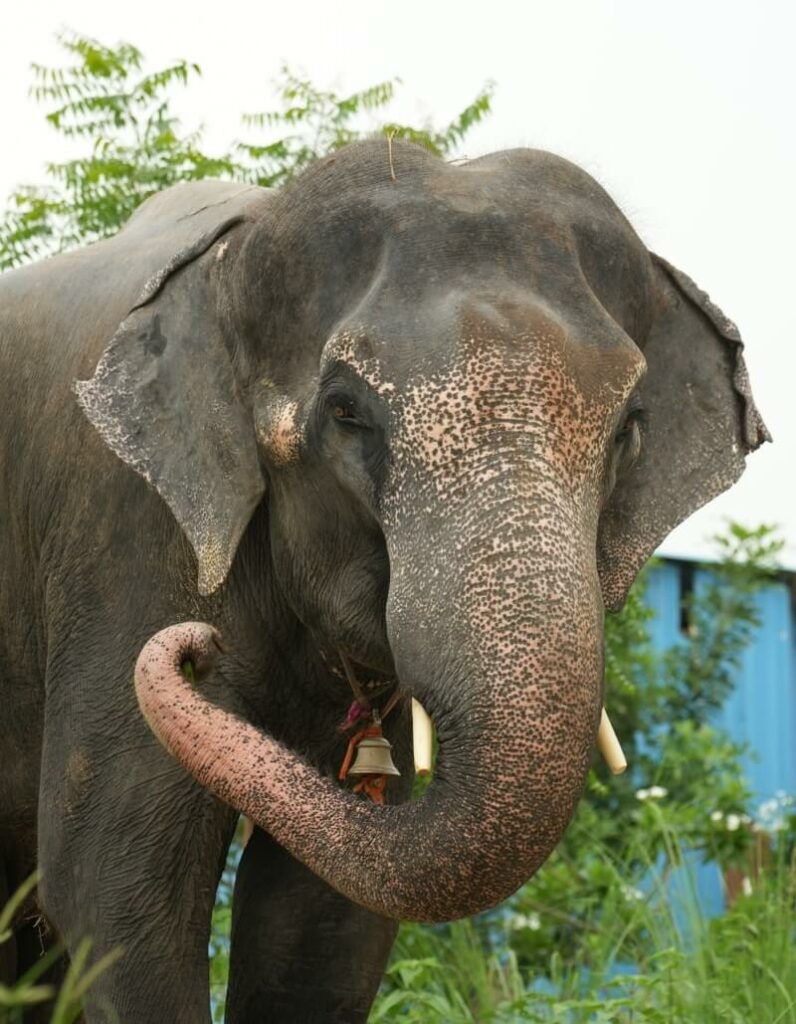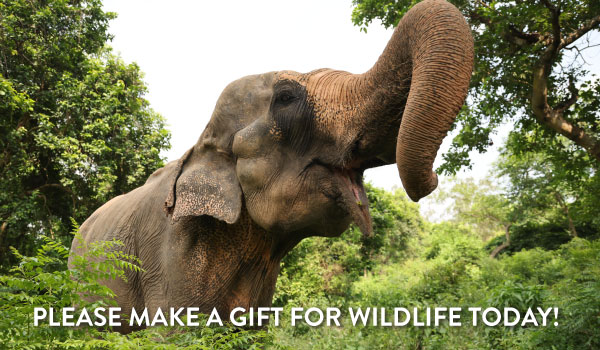Hari

Year of arrival: 2025
Age at the time of rescue: Approximately 25 years old
Sex: Male
Recognisable features: Abnormal outward bending of left forelimb and inward deviation on his hindlegs
Health condition when rescued: Visible deformity in the carpal joint of left forelimb, inward deviation of hindlegs, ankush (bullhook) scars along trunk, puncture wounds on his hindlimb from spiked chains; signs of degenerative joint disease
Facility: Elephant Hospital Campus (EHC)
Favourite food: Chapati (flatbread) and bananas
Background: Forced to beg on the bustling streets of Uttar Pradesh, Hari was held illegally captive by his owners. Upon discovery of his unlawful possession, Hari was immediately seized by the Uttar Pradesh Forest Department. His body bore clear signs of abuse: a deformed front leg, inwards deviated hindlegs, deep puncture wounds on legs from restraints, and ankush (bullhook) scars on his trunk. Wildlife SOS obtained approval to transfer Hari to the Elephant Hospital Campus , to receive specialised medical treatment and dedicated care. | READ MORE ABOUT HARI
HARI’S STORY
Hari, a 25-year-old makhna (tuskless elephant), spent years as a ‘begging’ elephant, walking through the busy streets of Uttar Pradesh under harsh conditions. When forest officials noticed his plight and asked his owners to present legal documents of possession, the captors could not provide them with any. Swiftly the DFOs of Ayodhya and Sultanpur, with critical support from the Honourable Union Minister, Shri Kirti Vardhan Singh, and his personal advisor Rushil Shergill, facilitated the intervention and Hari was finally rescued and moved to safety.
Public unrest and local resistance followed, however, the forest officials stepped up Hari’s protection, ensuring he remained well fed and under constant supervision. Wildlife SOS was brought in for a medical assessment, and the findings were deeply concerning.
Hari exhibited a visible deformity in the carpal (wrist) joint of his front left leg, along with ankush (bullhook) scars running along his trunk. He also bore deep puncture wounds on his hind limb from prolonged restraint with spiked chains. Early signs of degenerative joint disease were evident, likely from years of physical stress and neglect.
Recognising the urgent need for advanced veterinary care, the Uttar Pradesh Forest Department worked in close coordination with Wildlife SOS to facilitate his transfer to EHC, where expert veterinarians and caregivers are providing Hari with the medical attention and affectionate care he needs. The operation was carried out in collaboration with Wildlife SOS, and with due permissions from the Principal Chief Conservator of Forests (PCCF) and Chief Wildlife Warden of Uttar Pradesh, ensuring all legal protocols were followed.

